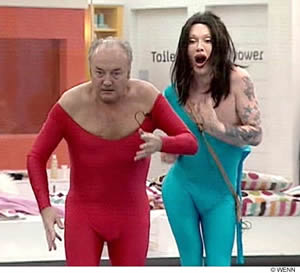Looking at the spy files. The Sunday Star Time's list is:
French South Pacific: civil, naval and military;
French Antarctic Civil;
Vietnamese Diplomatic;
North Korean Diplomatic;
Soviet merchant and scientific research shipping;
Soviet Antarctic Civil. Soviet Fisheries;
Argentine naval;
Non-Soviet Antarctic civil;
East German diplomatic;
Japanese diplomatic;
Philippine diplomatic;
South Africa Armed Forces;
Laotian Diplomatic [and] UN diplomatic;
TVNZ's
summary of the list is:
The report says New Zealand eavesdropped on communications from Argentina, the United Nations, the Soviet Union, East Germany, France, Egypt, Japan, North Korea, Vietnam, Laos, the Philippines, Fiji, Tonga, the Solomon Islands and South Africa.
I'm pleased that somebody in TVNZ knows about Laos even if the NZ Herald
doesn't ("Laotia" appears in the second last paragraph). So onto the analysis:
French South Pacific: civil, naval and military; The report states that we relied "heavily on [British] GCHQ acquisition and forwarding of French Pacific Satellite Intercepts" but some messages we seem to have intercepted ourselves. Our primary interest would have been the French Nuclear Testing, the Rainbow Warrior bombers and the troubles in New Caledonia. The Sunday Star Times article mentions us asking NSA and GCHQ to monitor certain Parisian telephone addresses as well as coverage of the yacht
Ouvea.
French Antarctic civil; Unless the French were actually doing something nasty, I have a strong feeling their communications were monitored out of sheer ill-will towards the french.
Vietnamese Diplomatic; What is being monitored here is probably Embassy radio communications. The question is whether it was the local embassy (if it existed at the time) being monitored or the Vietnamese Embassy in Canberra? I suspect the latter as there is less diplomatic embarassment
if we get caught when we just got caught. Now here's where things get interesting. The Chinese aren't mentioned on the list! Now the Vietnamese were leaning Soviet at the time while Chinese communications would have been intercepted by the Brits at Hong Kong (and the article states we got their government intercepts from GCHQ/NSA).
North Korean Diplomatic; This is where things get odd. Neither we or Australia have a North Korean Embassy (the Ozzies had one for about two years in the 70s) while the nearest thing that the North Koreans have in the States is the UN Mission. I can only surmise that we were listening in on North Korean communications with their mission while it would have been unlawful for the Americans to do so. This may also account for some or all of the Vietnamese traffic that we were listening to.
Soviet merchant and scientific research shipping; Soviet Antarctic Civil. Soviet Fisheries; No real mystery here as to why we were listening to their communications here.
Argentine naval Undoubtedly an aftereffect of the Falklands War. When though the Junta had been out of power for some years, the military was still suspect. Two things strike me as curious: one, the British had a perfectly place for listening at the Falklands Islands. Secondly, why weren't we listening in on Chile's communications? Pinochet was still in power and would be for another two years.
Non-Soviet Antarctic civil; This is probably a reference to the Indians and the Polish antarctic missions that we were described as spying upon in the SST article.
East German diplomatic; We were probably listening into the East German Embassy in Canberra.
Japanese diplomatic; This is a bit of a surprise chiefly because I didn't think we would have had the capability to do so. According to the SST article, we were getting raw transcripts from GCHQ/NSA sources and deciphering them. Unfortunately our capability to do so took a hit because a new cypher system was introduced. Our reason for doing so? Primarily their whalers.
Philippine diplomatic; While things were unsettled during the last year of Marcos's reign, I'm surprised that we were listening to them considering that the Americans had two military bases in the country. My tentative guess is that we were intercepting traffic to their UN mission.
South Africa Armed Forces; Obviously a cause for concern with Apartheid still in place there. I'm just curious as to why we were doing it when the Australians are in a slightly better position to do so while the British had far closer military bases.
Laotian diplomaticMy best guess is the interception of traffic to their UN mission.
Egypt Another curious entry on the list. If we were listening to Egypt's diplomatic traffic, why weren't we listening to Iran or Iraq (Iran had an embassy here while Iraq had an embassy in Australia)? The UN mission hypothesis doesn't work due to the geography and I can't think of any reason why we would have a compelling reason to listen in on their traffic.
Fiji, Tonga, the Solomon Islands The Fijian coups didn't take place until the year after this report while the Solomons were far quieter than New Caledonia then. I can't think of any reason to be listening into Tonga's communications and not Western Samoa or the Cook Islands. The choice of targets is hence a mystery to me unless the issue was Japanese wads of cash for votes in an upcoming IWC conference.

